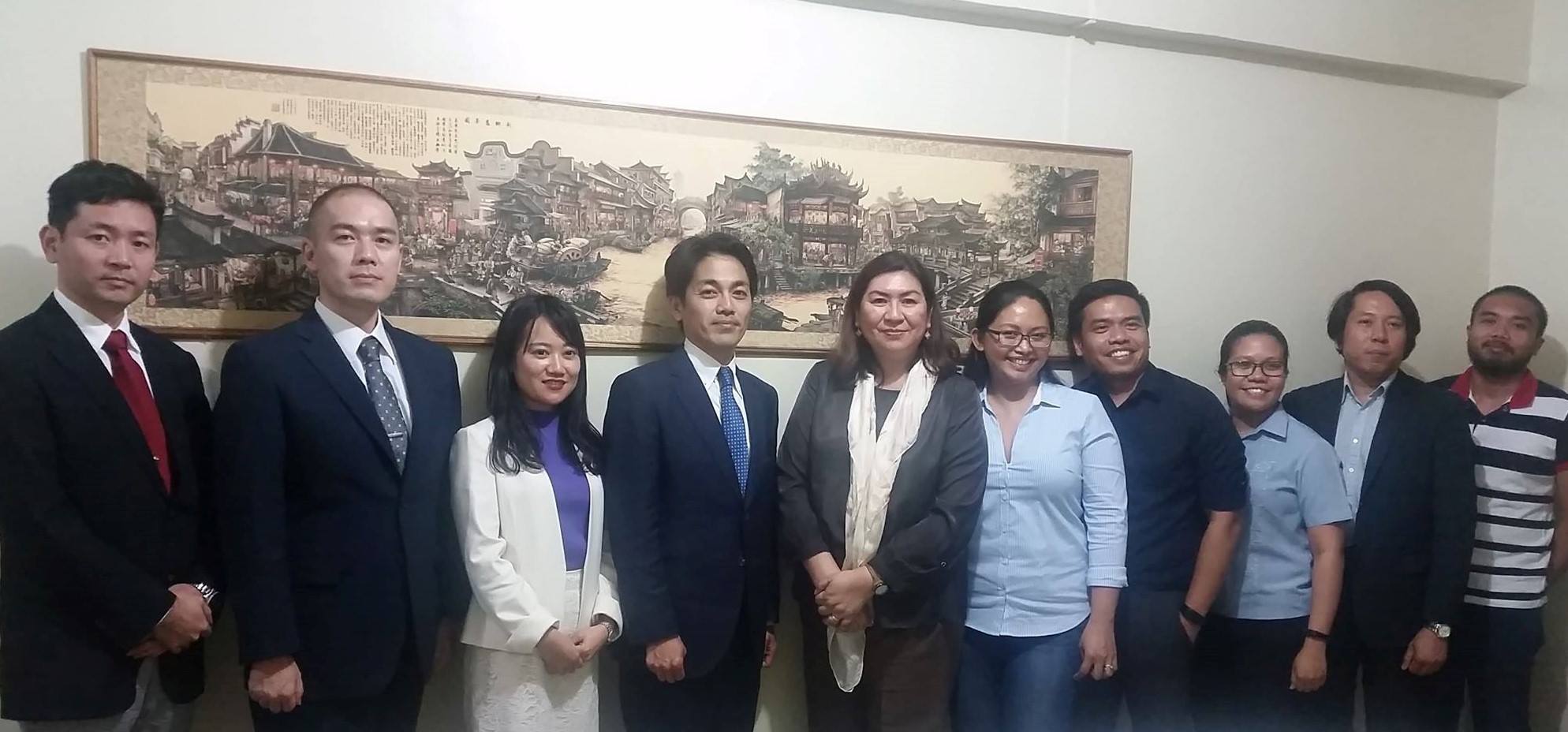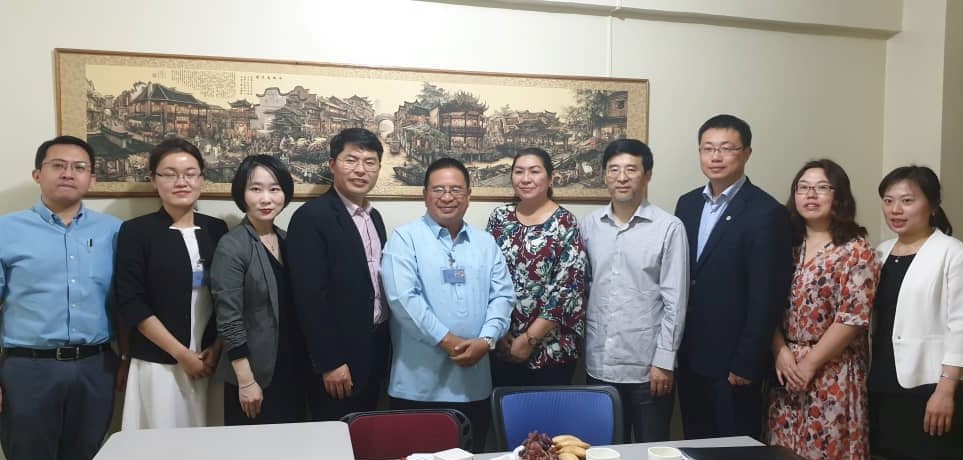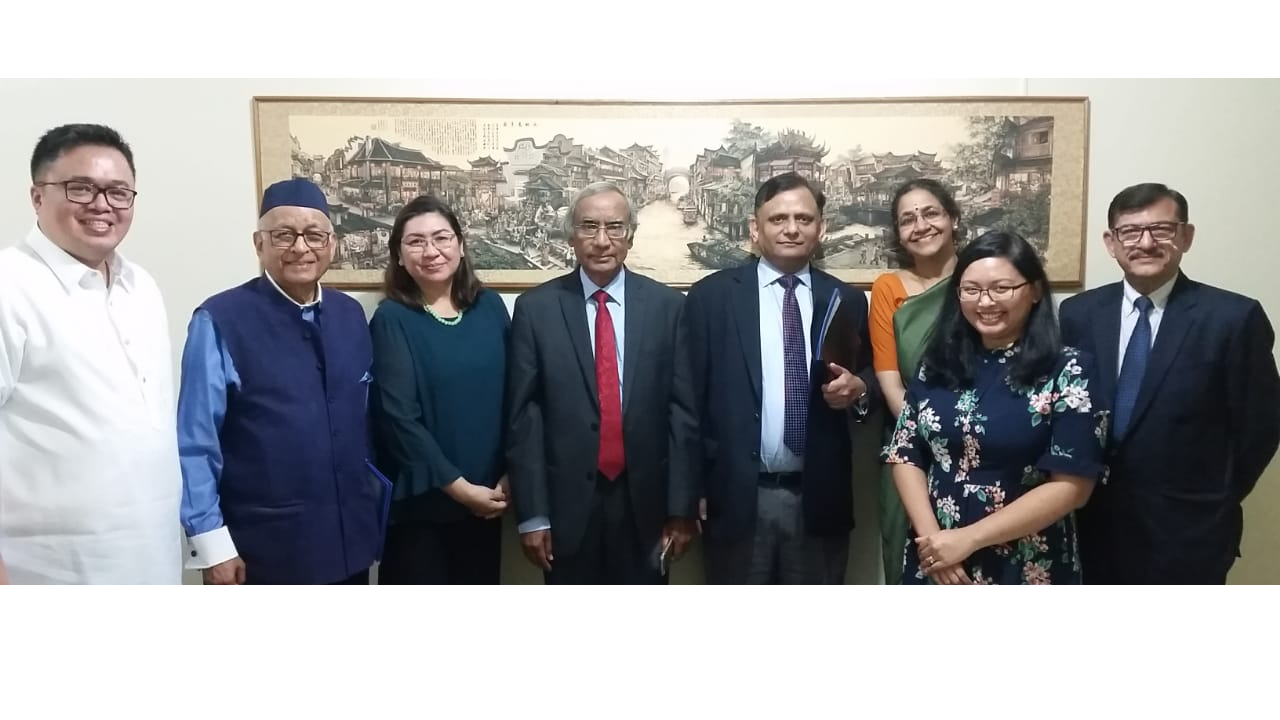News and Events
Gulf of Tonkin Agreements and the Antarctic Treaty System: Lessons and Implications for the Region
- Details
With relevance to exploring options in resolving or managing maritime and territorial disputes in the West Philippine Sea, the Department of Foreign Affairs (DFA) and Australian Embassy in Manila organized a lecture-forum on the Tonkin Gulf Agreements and the Antarctic Treaty System. The event was held last March 29, 2019 at the Foreign Service Institute, DFA Building in Pasay City. The audience was composed of junior foreign service officers, participants from other government agencies and think-tanks. Program Convener Aaron Jed Rabena and Research Fellow Lucio Blanco Pitlo III attended for Pathways. Key speakers were Professor Stuart Kaye, Director and Professor of Law at the Australian National Centre for Ocean Resources and Security, and Professor Nguyen Hong Thao, Professor of International Law at the Diplomatic Academy of Vietnam and Vice Chair of the U.N. International Law Commission.
Japan defense expert Masuda visits Pathways
- Details

Prof. Masayuki Masuda, Senior Fellow at the National Institute for Defense Studies (NIDS), visited Pathways on 21 March 2019 for an exchange of views on Indo Pacific security, alliances, and the Philippines-Japan relations. Joining him were Research Fellow Yuko Manabe also from NIDS, and Colonel Kazunobu Akutsu and Commander Michinori Fukuda from the Defense Attache’s office, Embassy of Japan in the Philippines.
Davao gets special focus in Chinese research
- Details
Pathways hosted a discussion on Davao’s economic planning and development between Mindanao Development Expert Dr. Fermin Adriano and a delegation from Shanghai Academy of Social Sciences (SASS) on March 12, 2019.

Indian think tank follows Act East policy, builds bridges in the Philippines
- Details

On March 11, delegates from Kalinga International Foundation, led by their Chairman, Ambassador Lalit Mansingh, met with Pathways to discuss India's bilateral ties with Southeast Asian countries and the changing geopolitical landscape in the Indo-Pacific. The discussion mostly focused on the possibilities and opportunities of enhanced interactions and partnerships between India and the Philippines, security issues in the South China Sea and the Indian Ocean, and better cooperation and interaction between Indian and Southeast Asian think tanks. The delegates were very eager to listen to Philippine perspectives on the region's security issues, and offered insights based on similar issues from the Indian subcontinent region. They also shared their perspectives on India's increased engagement with Southeast Asia and the United States' Indo-Pacific Strategy. Another topic of discussion was the revival of the Quadrilateral Security Dialogue, or the Quad 2.0, an informal strategic dialogue between the United States, Japan, Australia, and India. Widely viewed as a response to the increasing economic and military power of China in the region, the Quad was revived in 2017 after China's recent actions in the South China Sea. Despite being revived in the sidelines of the 2017 ASEAN Summits in Manila, ASEAN has not articulated a unified position on the revival of the Quad and its role in Southeast Asia, nor has the Philippines released its position on the matter.
